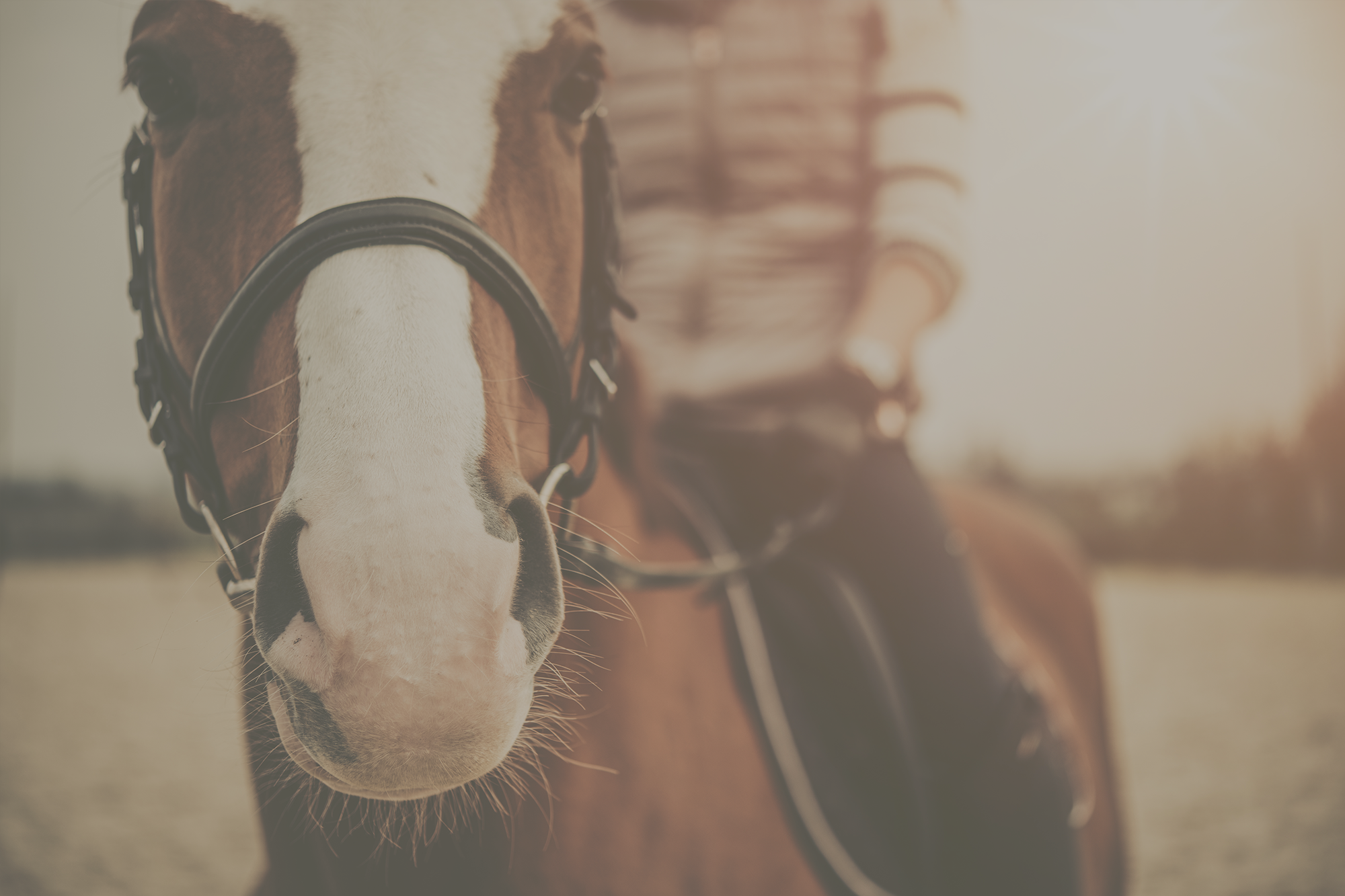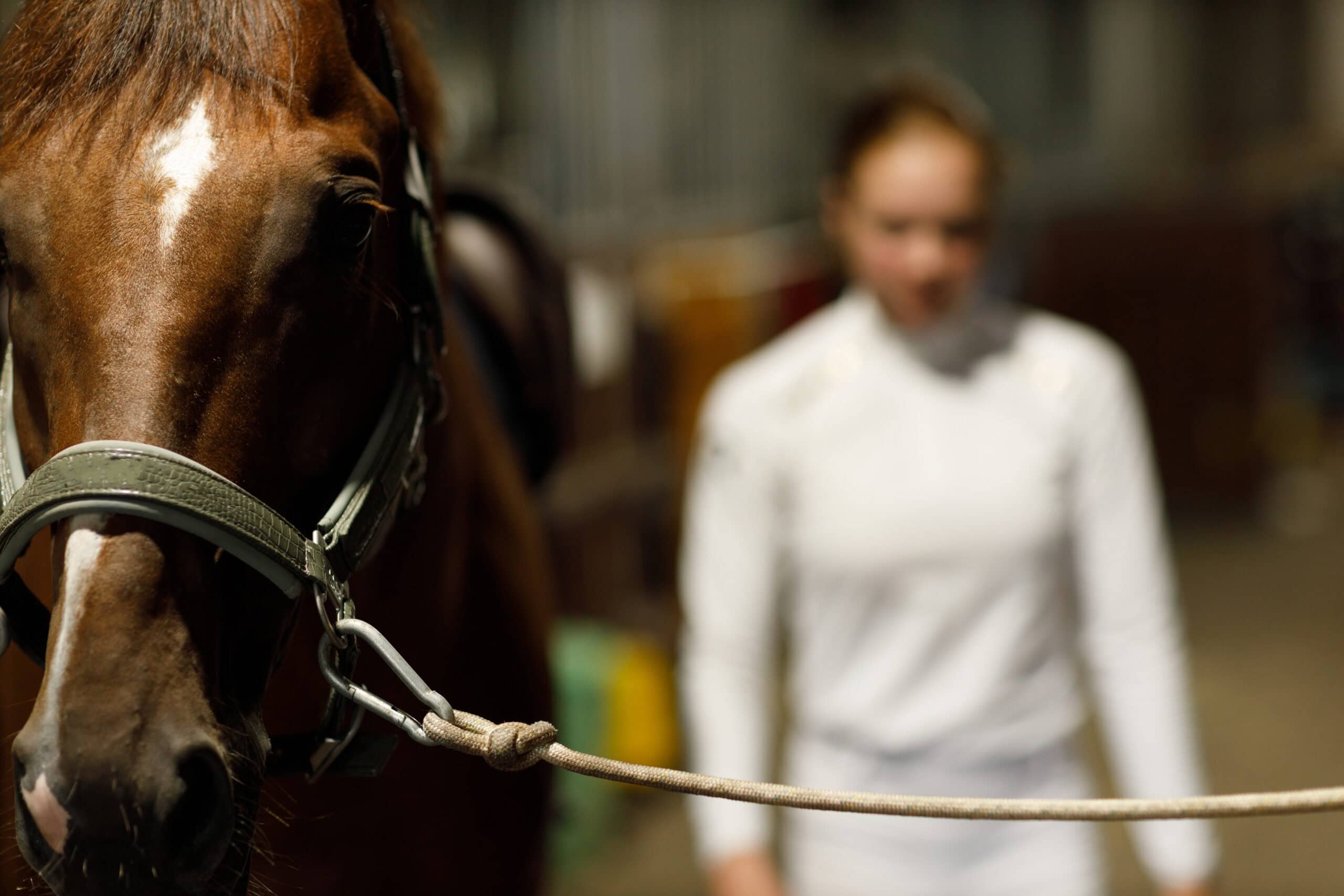Horse Sellers’ Disclosure Obligations
Do I have to tell buyers my horse did this? Examples of what sellers must disclose to potential buyers when selling a horse.


By Rachel Kosmal McCart
However, this is simply not true — horse sellers have a legal obligation to disclose every fact reasonably likely to influence the buyer’s decision and/or the horse’s fair market value. Here are some examples of common conditions horse sellers must disclose and why. Please note this list is for illustrative purposes only and is not intended to be all-inclusive.
Behavioral issues
Rearing
Why horse sellers should disclose: Rearing is one of the most dangerous behaviors a horse can exhibit. A rearing horse can fall over backward and crush its rider or otherwise cause the rider to fall off and be seriously injured or even killed. Horses that have developed a habit of rearing are also notoriously difficult to train not to rear. Even if the horse hasn’t reared in a long time, the behavior might come back if the horse is in a new setting, has a new rider, etc.
Bucking
Why horse sellers should disclose: Bucking is dangerous because it can cause a rider to fall off and be seriously injured or even killed. And the severity of bucking is relative: One rider’s “crowhop” is another rider’s rodeo. Even if the horse hasn’t bucked in a long time, the behavior might come back if the horse eats a higher-energy diet, has a different rider, receives less exercise, has a poor-fitting saddle, etc.
Spooking and bolting
Why horse sellers should disclose: Spooking and bolting are dangerous because they can cause a rider to fall off (often at a high rate of speed) and be seriously injured or even killed. Even if the horse hasn’t bolted in a long time, the behavior might come back if the horse is exposed to new stimuli, eats a higher-energy diet, receives less exercise, etc. And horses often exhibit this behavior unexpectedly, catching the rider or handler off guard.
Biting and kicking
Why horse sellers should disclose: A horse that bites and/or kicks is dangerous, whether it bites or kicks people or other horses (or both). Even if a horse only bites or kicks in certain circumstances (e.g., while being fed), the horse will need careful management for safety purposes.
ANY history of causing serious injury
Why horse sellers should disclose: If the horse has seriously injured a person or another horse once, it might do so again. At the very least, the seller will seem dishonest if the buyer finds out the horse put the seller in the hospital and the seller “forgot” to mention it.
Pulling back while tied
Why horse sellers should disclose: Not only is this behavior annoying and destructive, but horses that pull back when tied can also seriously injure and even kill themselves. If the buyer knows the horse pulls back, the buyer can take appropriate measures to make sure the horse doesn’t hurt itself or anyone else.
Cribbing, windsucking and weaving
Why horse sellers should disclose: Not only are these stable vices annoying and destructive, but they can also adversely affect a horse’s health, and they might be symptoms of other health issues. Cribbing, windsucking and weaving are notoriously hard to correct and often require careful management and special stabling accommodations.
Trailer issues
Why horse sellers should disclose: A horse that has difficulty loading into a trailer and/or unloading from a trailer is not only a pain to deal with, but it might also be dangerous to its handlers. A horse that scrambles or otherwise does not ride quietly in a trailer can injure itself and other horses in the trailer as well as cause damage to the inside of the trailer.
Health and Soundness Issues
ANY lameness history
Why horse sellers should disclose: Any active lameness, no matter how mild, affects the horse’s ability to perform and will likely require veterinary care (and, therefore, expense). Further, some prior lameness issues, even if completely resolved, such as bowed tendons, might affect the horse’s suitability for a particular type and intensity of work. Other lameness issues, such as those caused by osteoarthritis, require ongoing management (and expense) and might lead to the horse being unable to perform in the future. The seller should inform the buyer, release all vet records to the buyer and allow the buyer to make an informed purchase decision.
Heaves and other respiratory issues
Why horse sellers should disclose: A horse’s respiration directly affects its ability to perform. Heaves and other respiratory conditions often require careful management of the horse’s feed and environment, and some respiratory conditions might require medication and/or surgery.
Colic history
Why horse sellers should disclose: Some horses are more prone to colic than others and might require careful management. Prior colic surgery is especially important to disclose because the horse might have complications in the future, including recurring colic episodes.
Any surgical history
Why horse sellers should disclose: Any surgical procedure might have an impact on the horse’s future health and soundness.
Undescended testicles (cryptorchid)
Why horse sellers should disclose: Undescended testicles might render a stallion or colt infertile. Further, even if a cryptorchid is fertile, the buyer might not want to use him as a breeding animal because this condition is considered to be hereditary. Even if the buyer plans to geld the stallion or colt, an undescended testicle greatly increases the cost and risks of the gelding procedure.
Share this article

Written by: Rachel Kosmal McCart
Rachel Kosmal McCart is a lifelong horsewoman and the founder of Equine Legal Solutions, PC, an equine law firm based in the Portland, Oregon area. Rachel is a member of the New York, California, Oregon and Washington State bars and is admitted to practice before the U.S. District Court for the District of Oregon and the U.S. District Court for the Central District of California. Rachel currently competes in three-day eventing.








